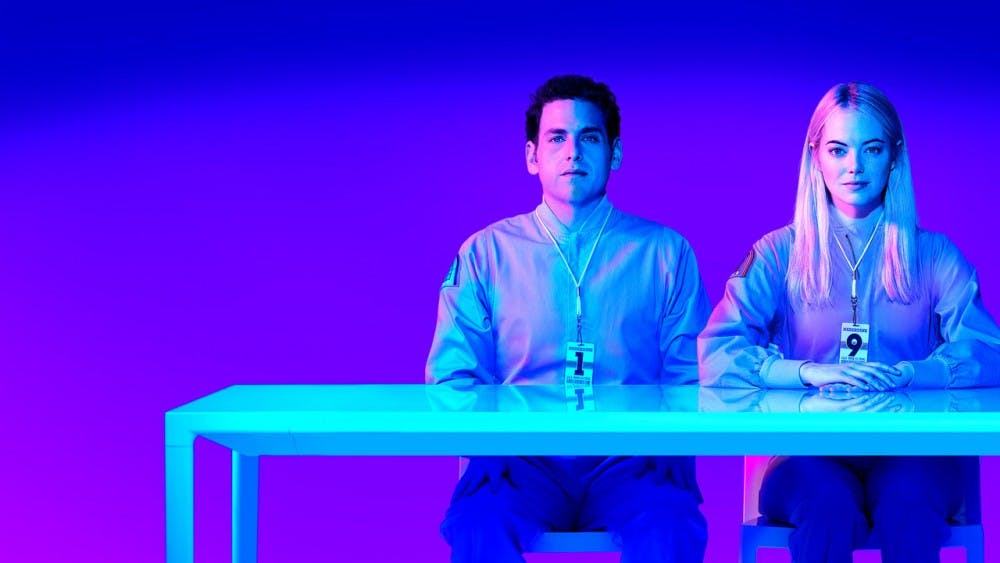Netflix’s new limited series “Maniac” debuted in late September and — what a big surprise — the streaming service behind such delights as “13 Reasons Why” and “To the Bone” has delivered yet another series that’s content to wallow in the pains of the mentally ill without ever representing them with truth or empathy.
The series follows a pair of trauma survivors as they enter a bizarre clinical testing program for therapy that purports to rid patients of their mental illnesses. There’s Emma Stone, a sort of vaguely upset young woman who we learn early on has been met with supreme misfortune and tragedy, and her counterpart Jonah Hill, a depressed schizophrenic whose ailments read more as drab glumness and occasional anxiety than anything else.
And therein lies the underlying problem in “Maniac.” Like the majority of Netflix’s previous original content about mental illness, it’s clear the series and its makers are out of touch with the real experiences of living with mental illness. In the absence of knowledge and experience is a vacuousness that pervades the entire series and ruins it entirely.
It’s soulless — utterly soulless.
That lack of understanding manifests itself in a way that’s less overtly problematic than the willfully triggering and wholly toxic antics of “13 Reasons Why,” but that still feels occasionally exploitative. Mining the sufferings of the mentally ill to create art that wishes to be profound is a tricky acrobatics act, because when it doesn’t work, it feels cold and objectifying.
Showrunner Cary Fukunaga isn’t so much concerned with experiences but rather with statements. And statements, however poignant they may read as on paper, aren’t inherently meaningful without emotion.
What’s worse is that “Maniac” reads as familiar. I’d call it a pastiche if I felt more generous toward it, but really it just reads as a cheap knockoff, assembled from pieces of better works. It’s vaporwave “Inception,” meets “Synecdoche, New York” and “Eternal Sunshine of the Spotless Mind” without their heart and emotion, meets “Cloud Atlas” without the clarity and coherence of its overlapping narrative threads.
But through its attempts to cobble together the best moments of better works, it loses their heart and soul. In its failures to represent mental illness as a tangible, felt experience or really anything beyond its cheap aestheticizing, it fails entirely. You can photocopy a script, but you can’t replicate its emotions.
The thing about “Synecdoche,” “Eternal Sunshine” and all the other Charlie Kaufman films “Maniac” so blatantly – and pathetically – imitates is that their manic energy and off-the-wall comedy is soulful and feels born of real experience. The struggles of Kaufman’s characters with mental illness feel genuine and heartfelt, and his singular blend of macabre humor and nuanced nihilism give him a roundabout way of addressing admittedly heavy topics. What he does feels at once effortless and profoundly genuine. He understands.
“Maniac,” on the other hand, does not understand on any level. It doesn’t understand mental illness, nor does it understand how or why Kaufman understands it.
And as a result, it feels largely rote, which is a shame because the conclusion it reaches feels ultimately meaningful, if mostly hindered by the fact that it’s the thematic climax of a severely disappointing series.
What the show wants to say about mental illness is in concept meaningful and tender, but it feels mostly worthless because its portrait of life with mental illness isn’t genuine.
It wants to be the sort of weird, off-kilter but ultimately powerful story Kaufman would tell, but it’s just another Netflix series that doesn’t recognize the severities and pains of life with mental illness.
Oh well. Maybe next time.




